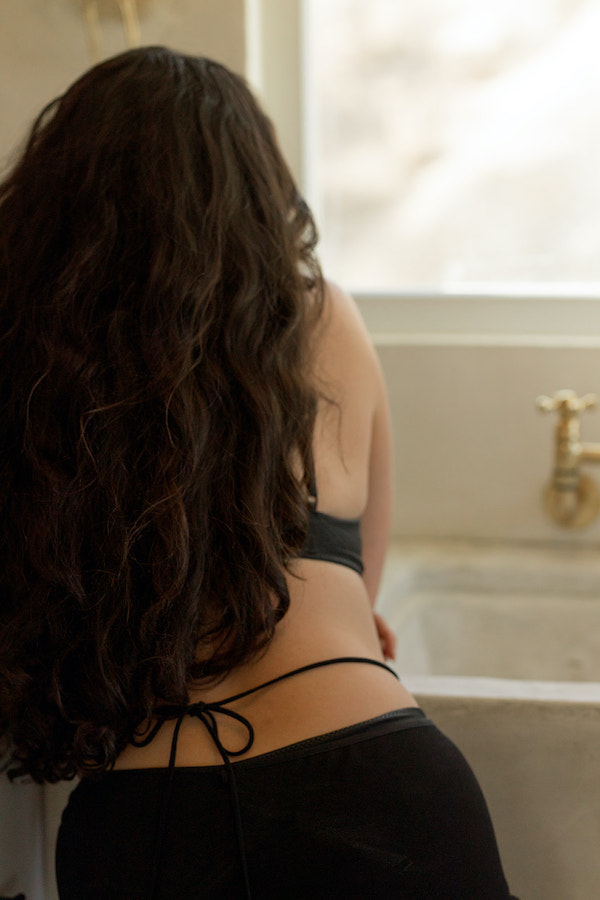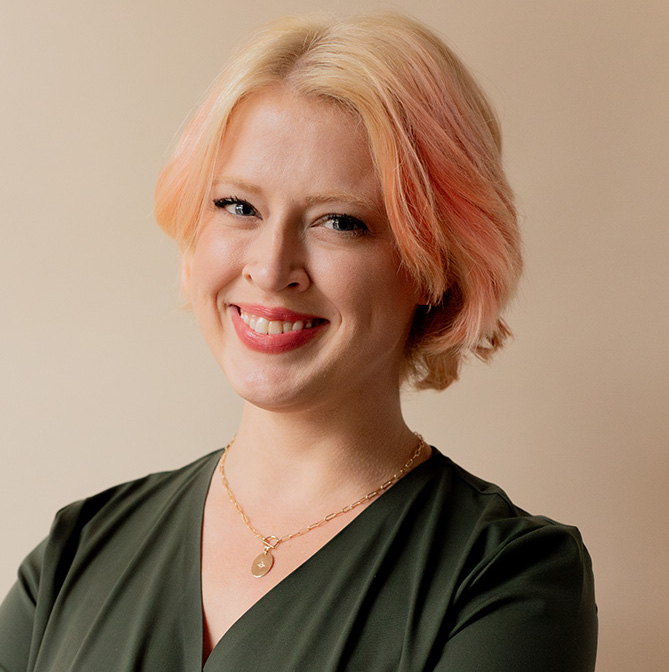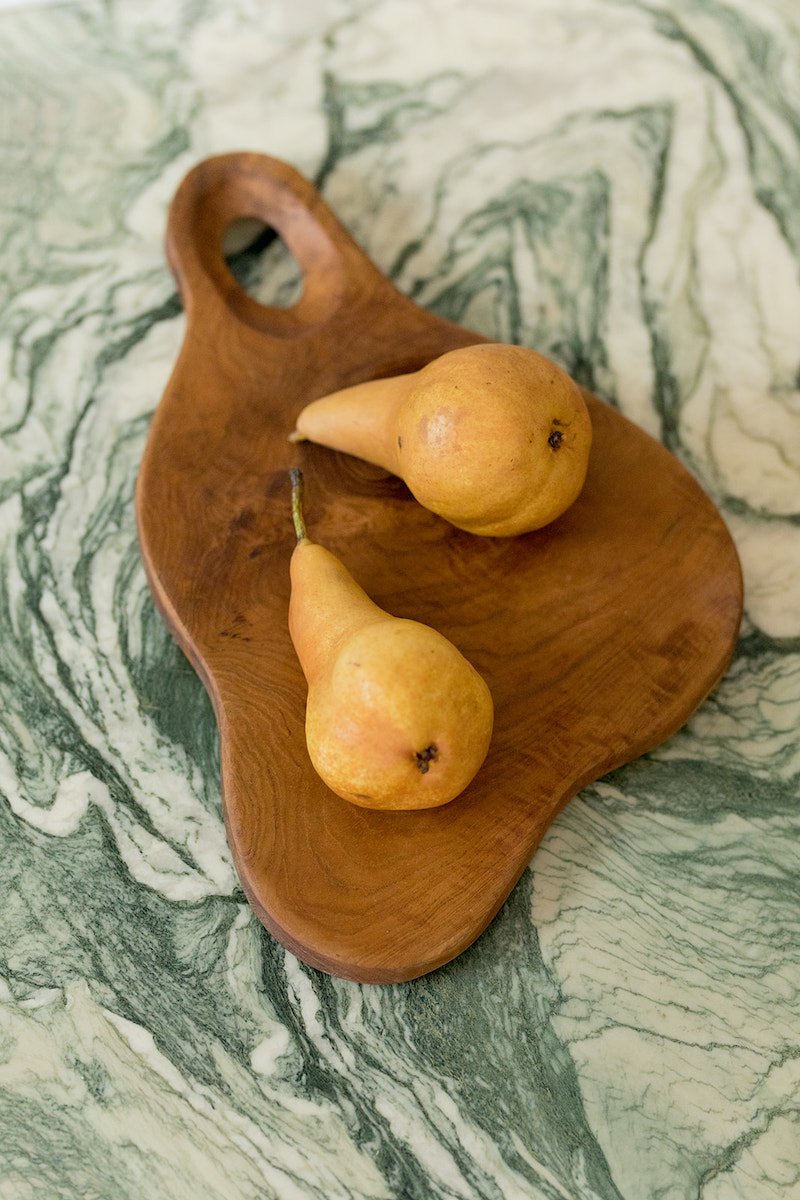
How To Trust Yourself
I have a tendency to stop everything that I start.
Here’s how it goes: I get an idea, I am consumed by the excitement of it. I daydream about it, plan it, and acquire the necessary tools to start. I begin with an eager and hopeful heart. And then I lose interest. Perhaps I reach a dead end, or found someone else doing it better. Sometimes I just don’t master a new skill as quickly as I would have wished.
So I stop pursuing the idea, leaving a trail of unused craft supplies, story outlines, and empty domain names in my wake. Shameful receipts, if you will, of all the things that might have been. And for many years, I allowed those “failed” followthroughs to define me — that I am a person who cannot trust herself to bring an idea to fruition.
But being able to trust yourself is crucial; at my healthiest, I know I can support myself no matter who criticizes me, what happens, or how many obstacles I face. I no longer defeat myself before I begin, and I accept the process of “stopping” as a natural and healthy end to something that no longer serves me. Self-trust is understanding how and when to implement our boundaries, without limiting or overextending ourselves.
“Self-trust is understanding how and when to implement our boundaries, without limiting or overextending ourselves.”
So as we head into 2025, I want to disconnect my self-esteem from how motivated I am to pursue my ideas. I’m reminding myself that I am not the skeins of yarn that were never crocheted, the drafted blog posts I never published, nor am I the coffee shop I never started. I am not my ideas. I am the container of them.
It’s a shift from only trusting my ideas, to trusting me (the container) as a whole and healthy person. As I’m learning more about how my brain works, I’ve discovered the COM-B model for behavior change, which highlights three areas (Capability, Opportunity, and Motivation) that need to balance in order to affect change. Essentially this framework asks:
- Do you have the skills, physically or psychologically, to do this?
- Are you surrounded by external factors to make this possible?
- Are you motivated to do this?
As I’m re-evaluating my self-trust and standards of success, I’m seeing how much I have deprioritized the first two bullet points. Instead, I’ve often only measured my worth as far as my motivation lasts (spoiler alert: that’s not sustainable). So, I’ve declared this my year of repairing a trusting relationship with myself — and maybe you want to, too. Here’s where I’m starting:
Take care of yourself.
The first step of self-care, from what I’ve learned, is forgiving ourselves for the ways we’ve hurt ourselves in the past. It’s the first step in rebuilding any relationship worth repairing. If your mind is less like a neat and tidy Pez dispenser, and more like a pile of scattered M&Ms (like mine is), you may have navigated harsh self-talk for many years.
Just because your mind changes, or feels scattered, doesn’t mean that you deserve to talk down to yourself. Ideas come and go — that’s natural! It’s not because you are untrustworthy, flaky, or less deserving of celebration. Practice some affirmations that meet you exactly where you’re at, rather than only loving yourself when you feel like you deserve it.
Physical self-care is important here, too. HINDZ, a soothing creator who sits down and chats over a cup of tea, notes in his video on self-trust: “When you can take care of yourself, you can trust yourself.” Addressing your basic needs like hunger, thirst, or fatigue without “if” or “when” conditions, helps us flex our self-trust muscles.
Understand yourself.
The comparison game is real, and I’m distancing myself from social media because of it. Instagram in particular, I’ve found, muddies the water between where my values lie and which accomplishments and aesthetics the algorithm is serving me. I feel a lot clearer on who I am when I’m not endlessly scrolling.
To replicate this feeling IRL, I try to prioritize alone time. When we’re able to spend time with ourselves, whether that’s in solitary meditation or a few moments of silence in the car after dropping the kids off at school, we can ask ourselves more about who we really are and what is most important to us. Boiling down to the basics helps us discover our values — and those change much less frequently than our ideas. These are the “why” behind our whims. Are you driven by a desire to be creative? To be efficient? To communicate clearly?
“Boiling down to the basics helps us discover our values — and those change much less frequently than our ideas.”
So maybe you have a hundred ideas today (phew, me too!). How will pursuing them support your values, whether you succeed or fail? If you value simplicity but suddenly have an idea to own a mansion filled with legos, that might not be the right fit. Give those ideas that aren’t aligned a gentle mental hug, and then let them go. (You can always return to them if or when your values change).
Support yourself.
I used to view changing my mind as a weakness, and didn’t always give myself the grace to support my in-flux mind properly. Take it from me, this doesn’t work. (Or take it from the Harvard Business Review, which found that our most creative ideas are frequently our last ones). Change is natural and productive, not a personal flaw.
“Change is natural and productive, not a personal flaw.”
So ask yourself, truly, how you can best accommodate your mind that’s maybe moving a thousand miles a minute. Is it more time to brainstorm? Is it an encouraging accountability buddy, or is it solitude and silence? I like to return to the COM-B model above, asking myself if I need to improve a skill, update my external opportunities, or find more motivation.
Find and use a system that works for you, like a digital calendar, a virtual assistant, or a wall full of sticky notes. And, of course, allow yourself to change systems when the novelty wears off or when the system begins adding stress (instead of relieving it).
Ultimately one of the most important ways we can support ourselves is, funny enough, asking for help. If you feel something is worth pursuing, but don’t know the next step, reach out to friends, family, or people who’ve been there. Internet strangers can count too!
Hold yourself accountable.
The final boss for every squiggly-brained person is accountability (thanks to Michelle from Holisticism for introducing me to that term).
I often thought I lacked self-discipline, but now I realize the word “self-discipline” is much too harsh. We don’t need more rules and expectations for ourselves — I argue that we need fewer. Trusting ourselves isn’t about fitting our squiggly selves into a perfect box, it’s about creating a squiggly container that fits our unique aspirations and limitations.
If we’re struggling to set healthy expectations for ourselves, we can instead practice accountability with the smallest things. Tell yourself you will shower today, and then shower. Or decide that you’ll step one foot out the door today, and do it. Self-trust is hard-won, and you sometimes have to go back to the very basics to lay the groundwork, especially if you haven’t trusted yourself for a long time.
“Self-trust is hard-won, and you sometimes have to go back to the very basics to lay the groundwork.”
I find it’s a balance between understanding my values as a whole person, and zooming in on the minutiae of achievable goals to build myself back up. It’s both/and, not either/or.
In the end, though, self-trust isn’t just about doing the things you say you’re going to do. It’s also stopping when you’re ready to stop. Don’t keep forcing yourself to do something you no longer have reason or motivation to do (like how I’m still feeding my sourdough starter, even though I haven’t used it in years). Acknowledge when you’ve reached your limits, physically, mentally, emotionally — and pause for a bit of rest when it’s time. Think of it as eating until you’re full or sleeping when you’re tired; when we understand our needs and respect them, we show up for ourselves as a trusted friend.
So yes, I have stopped what I’ve started — I always will. That’s the point of starting! Do something with your whole heart that excites you and inspires you, until you find it’s time to stop.
When you trust yourself, you’ll know when it’s time to rest. And when it’s time to begin again.
Trust me.
Emily McGowan is the Editorial Director at The Good Trade. She studied Creative Writing and Business at Indiana University, and has over ten years of experience as a writer and editor in sustainability and lifestyle spaces. Since 2017, she’s been discovering and reviewing the top sustainable home, fashion, beauty, and wellness products so readers can make their most informed decisions. Her editorial work has been recognized by major publications like The New York Times and BBC Worklife. You can usually find her in her colorful Los Angeles apartment journaling, caring for her rabbits and cat, or gaming. Say hi on Instagram!




